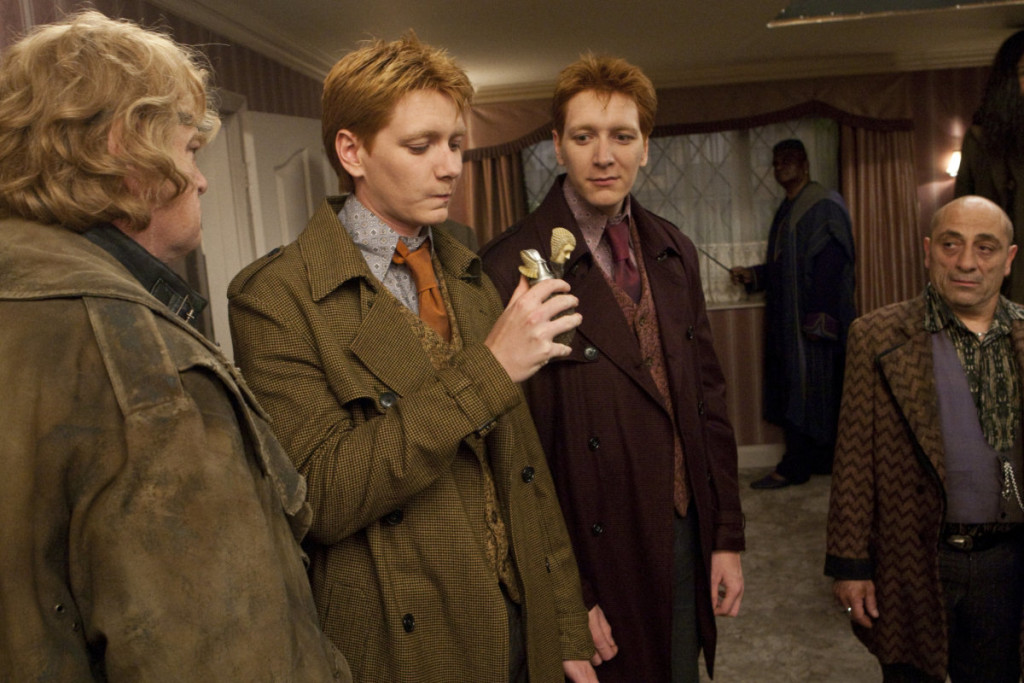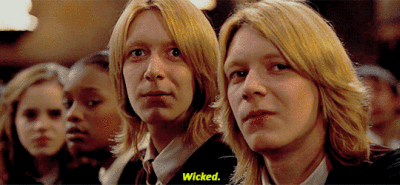The magic of the Harry Potter franchise lies not in all the wand waving, but rather in the strong willingness of the protagonists to fight for liberty. Be it as small as opposing nonsensical school rules, or as grandiose as combatting the authoritarian Ministry of Magic, the main characters are there to step up for their freedoms. With everything Harry, Ron, and Hermione have done for defeating intolerant social norms, lying media, meddling politicians, and the dictatorial Voldemort, you’ll be surprised to learn that it is actually not the trio who are the most freedom-loving characters in the series.
Call them what you want, libertarians, classical liberals or liberals, the mischievous twins, Fred and George embody all that the pro-liberty people of the world stand for. Let’s see what exactly they represent.
A Healthy Scepticism of Authority
The very first thing that comes to mind when thinking about Fred and George are the twins’ endless high jinks. They explored the grounds of Hogwarts better than anybody, they played pranks on their fellows, but didn’t break any serious rules, and definitely not the law. Then as the stories took a dark turn with the return of Voldemort and the oppressive and authoritarian efforts of the Ministry, the twins joined the so-called Dumbledore’s Army, a resistance group set up by Harry Potter to counter the Ministry directives. Fred and George also gave hell to the dictatorial Umbridge, who ruled over Hogwarts with an iron fist, disrupting her basking in power continuously.
Fred and George are the epitome of entrepreneurship. They build themselves up from scratch. Without any money, they develop prank products and despite financial losses due to a fraud they stick to their ideas. When Harry Potter invests in them they wisely reinvest the money and manage to establish a very successful business at the height of an economic dryspell caused by Voldemort’s return. They don’t shy away from taking risks, which pays off nicely later on. The twins expertly managed to identify the demands with their joke shops and they even supplied the Ministry of Magic with useful goods.
What’s Best for Others?
Tolerance is a recurring theme in Harry Potter. Often, however, apparent tolerance is used to mask a patronizing attitude by characters. It is all well and admirable that the story’s protagonists defend non-wizarding people and muggle-borns, but they still use the word muggle as a pejorative term and often speak of them condescendingly. The same is true in the case of house elves. Harry is often patronizing and disdainful with them, definitely treating them as second class (for example Dobby, a house elf, knits Harry socks from his own meager amount of money for Christmas, which are treated with contempt behind the elf’s back, while a knit sweater from a witch is a welcome gift). Hermione seems to know what’s best for elves, calling them brain-washed, and wants to forcefully get them sacked.
Fred and George, on the other hand, respect the elves’ will to remain at their stations, a job that sometimes gives them pleasure. The twins often visited them in the kitchens to get food, which benefited both parties greatly: the Weasley brothers got snacks, the elves satisfaction with their work. Fred and George never mistreated elves, unlike Harry, who was often rude to them.
The twins also didn’t look down on muggles as most of the witches and wizards, other main characters included. They socialized with them (they wanted to pick up a muggle girl), and they learned from them (they had a section dedicated to muggle magic tricks at their joke shops and they learned how to pick locks in a non-magic way, which came in handy when freeing Harry from his uncle’s house).
And so Fred and George, with their strong individualism, clear moral compass, entrepreneurial spirit, and tolerance are a perfect role models for readers. The story of Harry Potter therefore shows how already students can change the world. If other students and young adults are like the twins, the world will sure turn into a better place.




